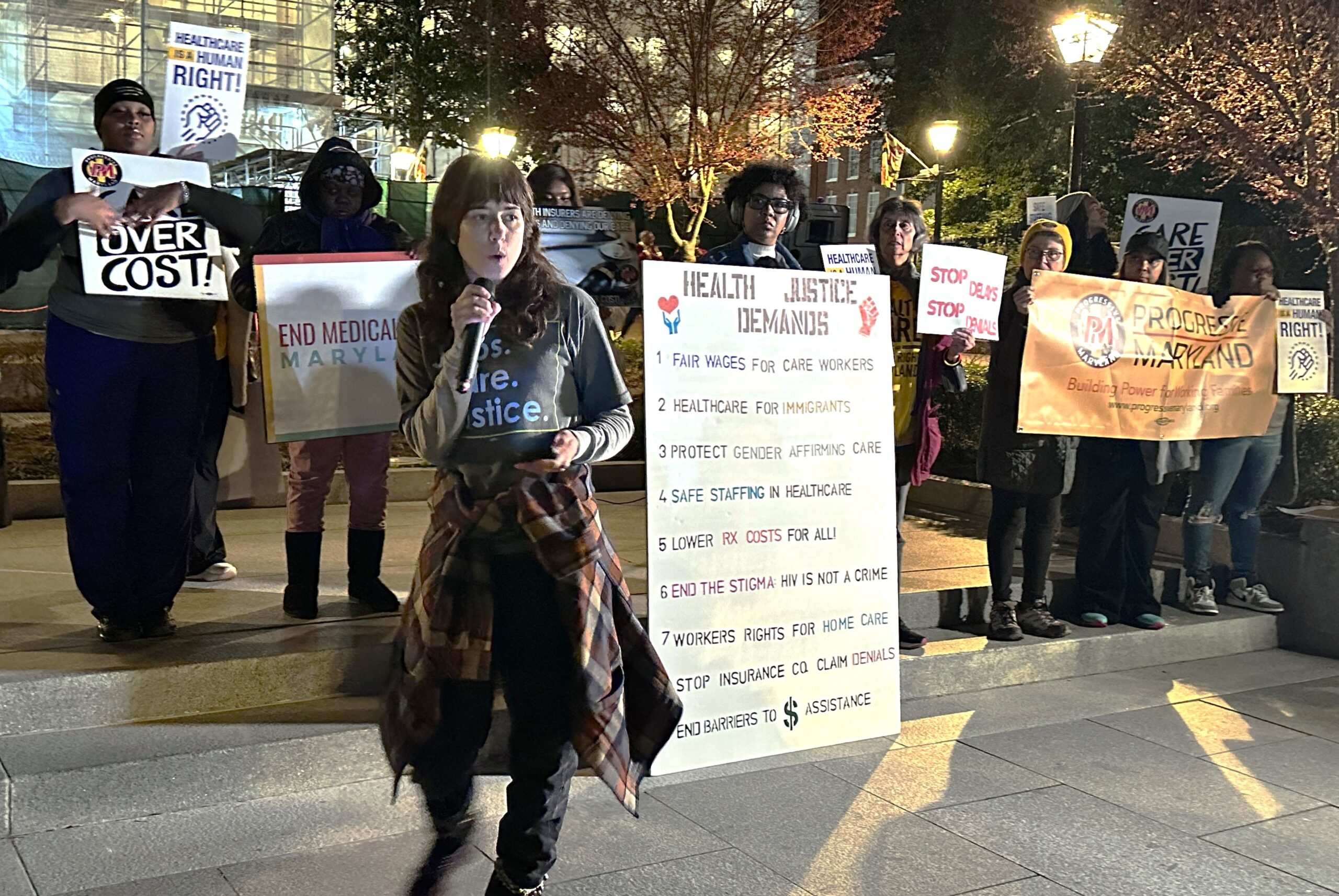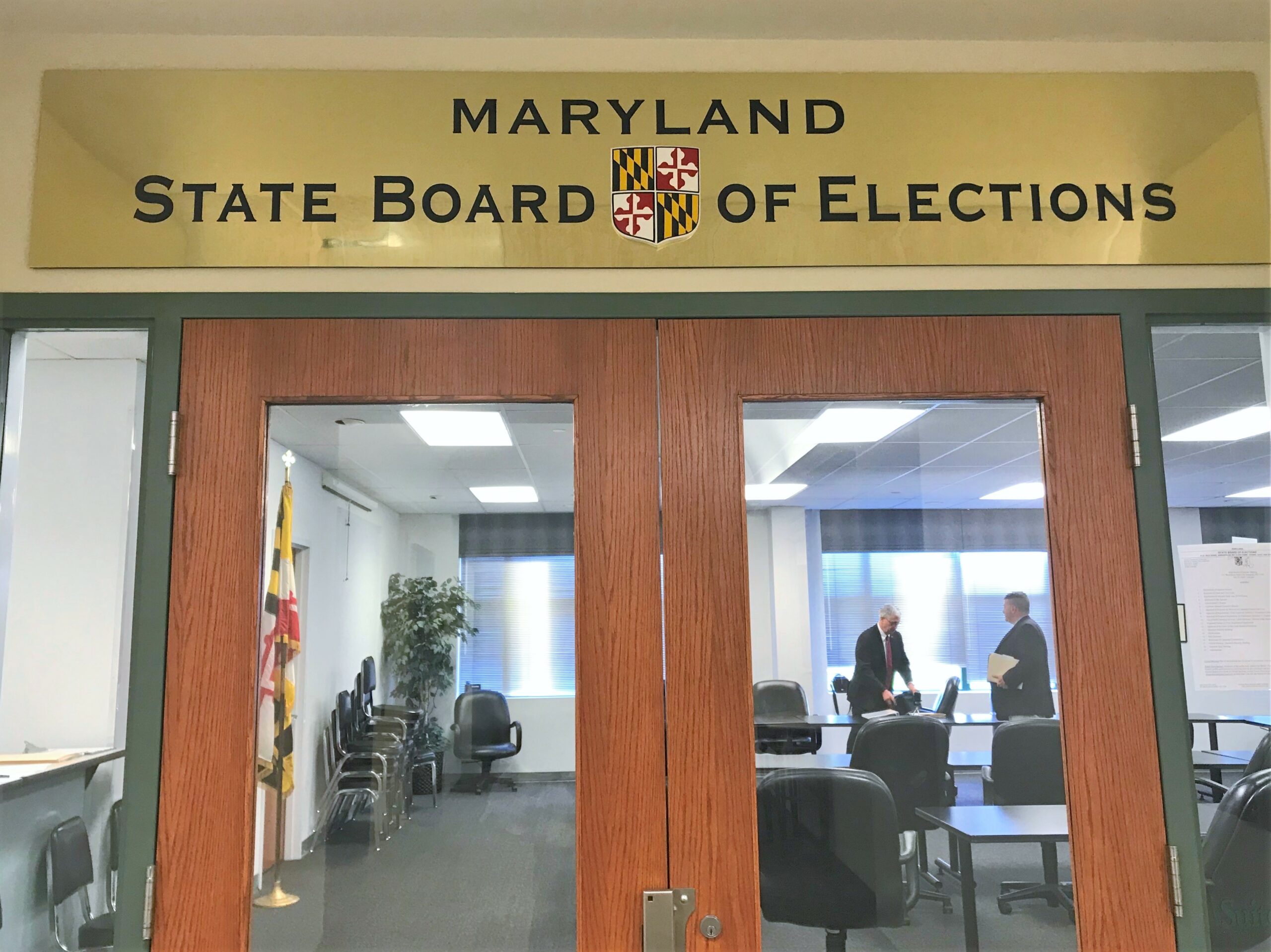Maryland Winners and Losers From Tuesday’s Elections

Tuesday’s election results — in Virginia, in New Jersey, and elsewhere — will be interpreted, reinterpreted and misinterpreted again and again over the next few months. So why shouldn’t we get in on the action?
There were also elections in Maryland this week — they too may tell us something about the mood of the electorate.
What happened Tuesday, especially across the Potomac River in Virginia, will undoubtedly impact what happens here as the consequential election of 2022 approaches. Republicans are exultant, Democrats are glum, and that helps set the dynamic for 2022. Remember, too, that half of Marylanders live in the Washington, D.C., media market, which means that many are being inundated by minute-by-minute political news from the nation’s capital, which also has a bearing on the state’s political landscape.
Of course, American voters are mercurial and fickle. President Biden’s poll numbers are down now, but they could rebound. Former President Trump could be front and center again during the 2022 midterms, which might work to the GOP’s disadvantage. A thousand crazy things can and probably will happen that will impact the 2022 election — in Maryland, nationally and across the globe.
Here’s our take on what the 2021 vote might mean for 2022, and who in the Maryland world, at this precise moment, benefits and suffers.
Winner: Kelly M. Schulz
The Republicans in Virginia and New Jersey swung suburban women voters, who had defected emphatically to the Democrats during the Trump era, back their way. And if that trend holds, that’s nothing but good news for Schulz, the Republican establishment favorite in next year’s gubernatorial primary, who is running, optically at least, as the epitome of the common-sense suburban mom. Ditto for Anne Arundel County Councilmember Jessica Haire (R), one of the Republicans running for county executive next year.
The one caveat for Schulz: What if the great day for Republicans spurs Michael Steele to get into the GOP race for governor? We should know soon.
Winner: Gov. Lawrence J. Hogan Jr. (R)
In Virginia, Glenn Youngkin ran as a reasonable facsimile of Hogan, and Hogan quietly helped him. Hogan will now have a like-minded ally across the Potomac River for his last year in office. Youngkin also navigated the Trump dilemma deftly. Of course, the former president is claiming credit for Youngkin’s victory, but the reality is, Youngkin prevailed in a swing state while muting Trump’s impact — and that’s good news for Hogan, because it shows there is a way for the GOP to win tough races without the ex-president’s outsized influence.
You’d never know it from the way Republicans are behaving on Capitol Hill, but maybe Trump’s grip on the GOP is easing a little. We noted that on election night — before the Virginia races were officially called — Hogan publicly congratulated Youngkin and Attorney General-elect Jason Miyares (R), but not Lt. Gov.-elect Winsome Sears (R), the Trumpiest of the three statewide Republican candidates.
Meanwhile, the popular conservative podcast “Ruthless” this week is urging the term-limited Hogan to run for U.S. Senate next year, arguing that Republicans could then anticipate “a big win” by sweeping the Senate and gubernatorial elections in Maryland. While Hogan remains steadfast in his resistance to the idea, you know he’s got to love the attention.
Winner: School choice advocates
Mere hours after Youngkin was declared the winner in Virginia, Del. Nicholaus R. Kipke (R-Anne Arundel) announced on social media that he plans to introduce legislation in the upcoming General Assembly session to expand school choice, protect and expand vouchers, and create tax credits for families that homeschool their kids. School choice advocates — and they aren’t all Republicans — will no doubt feel emboldened.
Winner: John B. King Jr.
As if we needed any reminding of how important the education issue is going to be in the 2022 election, look no further than Virginia Republicans’ brilliant exploitation of the “critical race theory” issue. Who better to articulate a post-Blueprint blueprint on education — and a coherent progressive rebuttal to the GOP’s persistent racial dog whistle on “CRT” — than President Obama’s former Education secretary? King remains, for now, the sleeper candidate of the Democratic gubernatorial primary.
Loser: Tom Perez
Fairly or not, Terry McAuliffe’s loss in the Virginia gubernatorial election will prompt some in Maryland to ask, “Why do we need a former DNC chair as our nominee?”
Loser: State Sen. Katie Fry Hester (D)
There aren’t very many competitive legislative districts left in the state, but Hester’s, which takes in parts of Howard and Carroll counties, looks a lot like some of the House districts in Virginia that flipped from blue to red this week. Not coincidentally, these same districts contributed to the Democrats’ House majorities in the Virginia legislature in the past two election cycles (Hester won her seat for the Democrats in between those two elections, in 2018). Will Democrats try to solidify Hester’s district in the redistricting process? Seems a safe assumption.
Loser: The Maryland Democratic Party
Every year — and every year is an election year in Virginia — Maryland Democrats send troops across the river to help candidates up and down the ballot. But Maryland Democratic leaders have vowed that they’ll seek some reciprocity from their counterparts in the Old Dominion next year. However, now that Virginia has become less of a blue paradise, the Democrats will be working hard next year to save their most vulnerable members of Congress there, like Reps. Elaine Luria and Abigail Spanberger. In other words, no reinforcements from Virginia here in 2022.
Push: Progressives
Boston elected an Elizabeth Warren protégé to be mayor. But in Buffalo, N.Y., India Walton, an avowed socialist, lost the general election to the incumbent mayor, who ran a write-in campaign, after ousting him in the Democratic primary. Was McAuliffe too centrist to inspire Democrats to turn out in Virginia? In New Jersey, Gov. Phil Murphy (D), arguably the most progressive governor in America, had a big scare, but he did hang on. No doubt, Democrats will continue fighting about whether to tack farther left or lurch to the center through the end of time. Both sides are right — and wrong.
Push: Anne Arundel and Frederick counties’ Democrats
Sometimes, the election results in Annapolis and Frederick are considered harbingers of coming political trends. In 2017, Democrats ousted Republican mayors in both cities; in Frederick, Democrats swept all aldermanic seats, and in Annapolis, they won all but one city council seat. A year later, Democrats had strong showings in both Anne Arundel and Frederick counties, up and down the ballot. This week, the Democratic mayors were reelected and the Democrats swept all the council seats in both cities. But no one is pretending that Democrats are going to do so well at the county level in 2022; both county executive seats are in danger of flipping, and Republicans could make gains in other county and legislative races as well.
Push: Comptroller Peter V.R. Franchot (D)
There is a direct line between Joe Biden, Terry McAuliffe, and Peter Franchot. And earlier in the election cycle, that was an asset. They could all claim to be the competent political veteran, the happy warrior, that unflappable older white guy who had seen and done it all. When Uncle Joe was still doing relatively well in the polls, that was enough to propel McAuliffe to a Democratic primary victory over younger and more dynamic opponents. But the Biden link did nothing for McAuliffe in the general election and in fact served as a turn-off to most voters.
So now Franchot, as he competes against eight Democratic primary opponents in the gubernatorial election, faces the same dilemma. If he’s not Maryland’s answer to Biden, what is he? Reinventing himself has never been Franchot’s problem, and it’s debatable whether any of the other Virginia Democrats who ran for governor would have done better in the general election than McAuliffe, who, after all is said and done, only lost by 2 points.
But it can certainly be said that it would have been harder for Youngkin and Republicans to say that teaching race history in public schools was a bad idea if his opponent was Black — and some of the candidates of color are likely to make that argument here in Maryland.
On Facebook Wednesday, Franchot suggested that he’s the Democratic candidate with the best chance of winning in 2022. He noted that in 2018, he won more raw votes than any candidate for statewide office in Maryland history. But he wasn’t exactly facing a credible challenger.
Winner: School board elections
Y’all better be paying attention!




 Creative Commons Attribution
Creative Commons Attribution